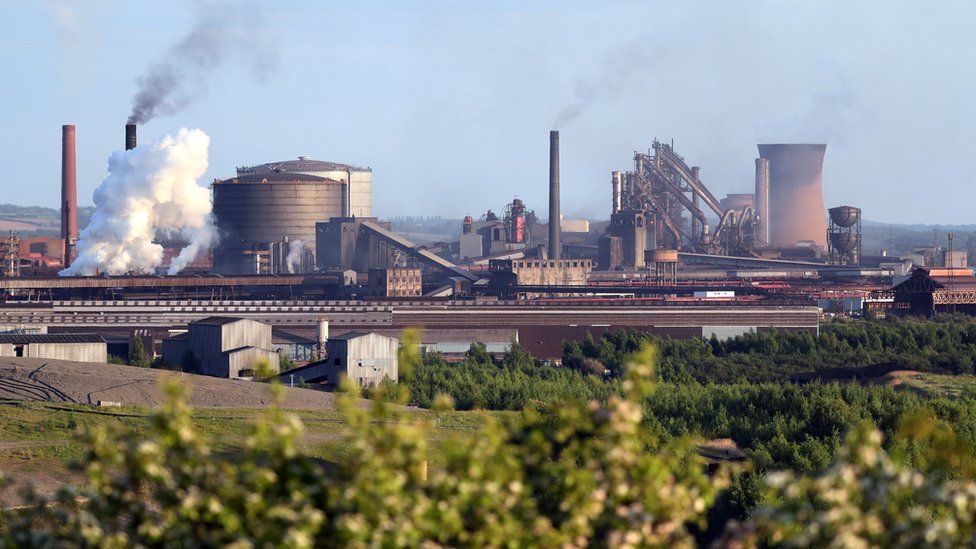6 minutes ago
About sharing
British Steel plans to close down its blast furnaces in Scunthorpe, putting up to 2,000 jobs at risk.
The business, owned by China’s Jingye Group, wants to replace them with two electric arc furnaces – one at Scunthorpe and one at Teesside.
The construction is expected to take between two and three years.
British Steel said it aimed to transform the firm into a “green and sustainable company” and had to look at different scenarios to help it do this.
Unions estimate the shift could ultimately lead to the loss of 1,500 to 2,000 jobs, predominantly at Scunthorpe.
Sources at the Department for Business say the proposals are part of a plan, involving a package of taxpayer support of up to £500m for British Steel, which mirrors a package agreed for rival Tata.
Tata announced earlier this year it would close its two blast furnaces in Port Talbot and replace them with electric arc furnaces, with an expected loss of up to 3,000 jobs.
Government sources said that the blast furnace plants were not economic – they are losing £1m a day, they say – were not “green” and were therefore unsustainable on financial and environmental grounds.
The government conceded that the plan to close the blast furnaces at Scunthorpe and Port Talbot will leave the UK without the ability to make “virgin steel”.
But it insisted that there were limited domestic cases where that kind of steel was needed, and that the output from electric arc furnaces covered most of the UK’s needs.
Creating steel using coke-fuelled blast furnaces emits more greenhouse gases and requires more manpower. But because it reaches higher temperatures, it can smelt iron ore directly to create steel.
Electric arc furnaces are mostly used to melt down and repurpose scrap steel. The end product is not the same grade of steel as that produced in blast furnaces, and is not suitable for all industrial uses.
However, because they run at lower temperatures, they can use electricity generated by renewables.
Unions expressed concern at the timescale of the migration and said they would examine British Steel’s proposals in detail.
They have already threatened industrial action over Tata’s plans.
A British Steel spokesperson said the company was committed to “providing long-term, skilled and well-paid careers for thousands of employees and many more in our supply chains”.
How are you affected by the issues raised in this story? Share your pictures and experiences by emailing haveyoursay@bbc.co.uk.
Please include a contact number if you are willing to speak to a BBC journalist. You can also get in touch in the following ways:
WhatsApp: +44 7756 165803
Tweet: @BBC_HaveYourSay
Upload pictures or video
Please read our terms & conditions and privacy policy
If you are reading this page and can’t see the form you will need to visit the mobile version of the BBC website to submit your question or comment or you can email us at HaveYourSay@bbc.co.uk. Please include your name, age and location with any submission.
Related Topics
2 days ago
3 days ago
8 June
4 February


